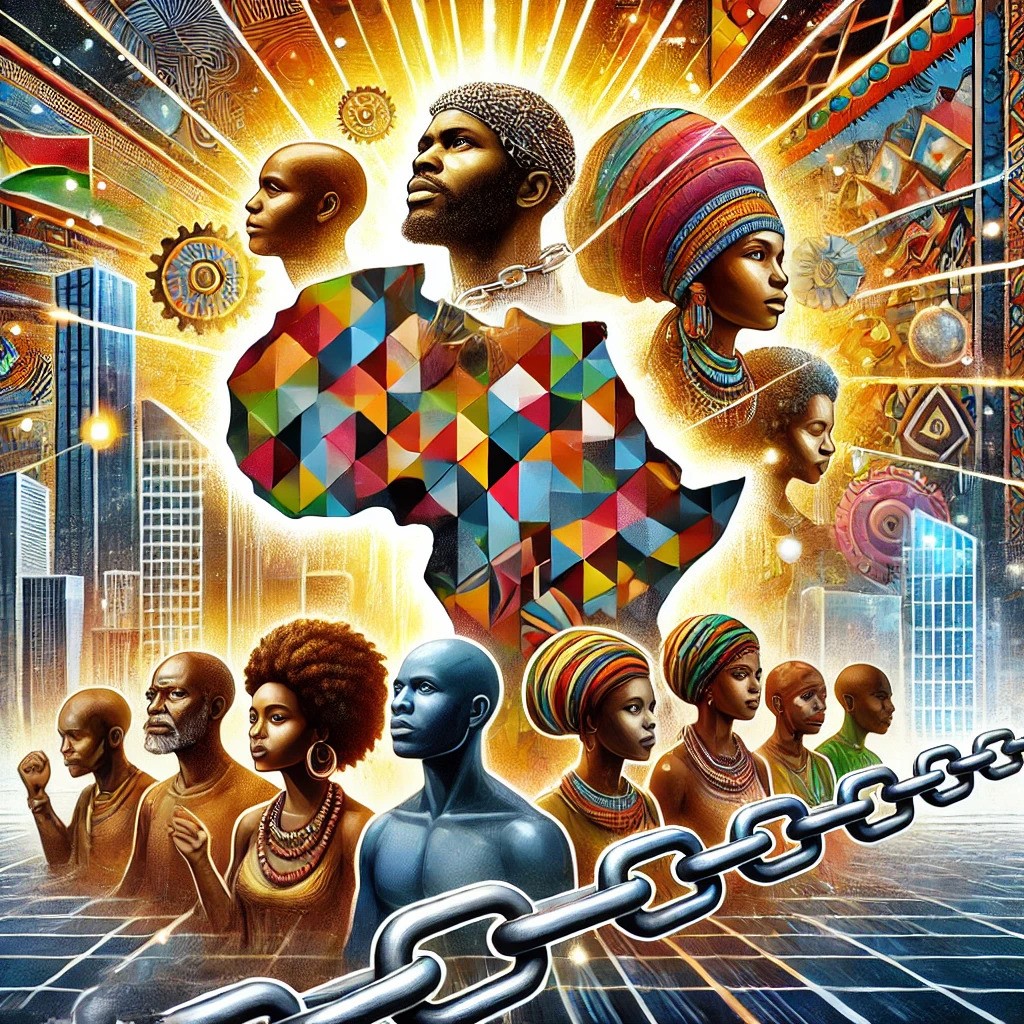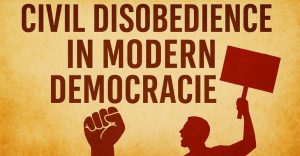
Revolutions are brought about by men, men who think as men of action and act as men of thought- Kwame Nkrumah
There’s no true freedom without a fight or demand for it, no one bound goes free without an effort. Throughout history, every significant gain in freedom has come from the determined actions of those who refused to accept subjugation. From the anti-colonial fighters who shed blood for independence to the modern activists demanding political reform and economic justice, the path to freedom is marked by struggle and sacrifice. The likes of Jomo Kenyatta in the Mau Mau uprising in Kenya, and Nelson Mandela in the Apartheid struggle in South Africa. Today, the fight continues on multiple fronts. Several African countries engaging in protests here and there. Economic freedom, cultural preservation, and intellectual autonomy are just as crucial as political independence. How then can the average African man be decolonized completely and gain true freedom?
Many African countries were freed from colonial authority as a result of a wave of independence movements that swept the continent in the middle of the 20th century. The political climate of the continent underwent a dramatic change during this time due to a confluence of domestic and external forces. But the minds of many still remains encaptured and controlled by the trauma of the colonization from yesteryears.
Earlier, in the late 19th and early 20th centuries, several European nations, notably Britain, France, Belgium, and Portugal, established colonies in Africa. In addition to imposing foreign administration structures and abusing African resources, these colonial regimes frequently persecuted the native populace. Colonialism significantly negatively impacted customary societies, economics, and cultures. After World War II, African populations began to feel a growing sense of nationalism. Educated elites motivated by the ideas of self-determination and widespread anti-colonial sentiments and the United Nations Charter’s tenets of self-determination, started to organize and call for independence. Prominent figures in the freedom movement were Kwame Nkrumah of Ghana, Jomo Kenyatta of Kenya, and Julius Nyerere of Tanzania.
Decolonization Initiatives:
Across the continent, the decolonization process took several forms. Negotiations and political pressure led to the relatively peaceful attainment of independence in several countries. For example, in 1957 Ghana became the first country in sub-Saharan Africa to declare its independence from Britain. In other countries, like Kenya and Algeria, nationalist groups battled against well-established colonial authorities over protracted and bloody independence struggles.
But today, African countries are still permanently impacted by colonialism, which still affects their political, social, and economic systems. African nations are still impacted by the legacy of colonialism, frequently as a result of neo-colonial actions taken by former colonial powers and other international players.
African nations have underdeveloped industries and economies that are mostly dependent on primary commodities because colonial economies were built to extract and export raw materials for the profit of the colonial powers. As a result, these economies lack diversity and are susceptible to changes in world prices.
During the colonial era, the main goal of infrastructure development was to facilitate resource extraction and export. This led to uneven development, with transportation networks connecting ports to mines and plantations rather than combining
Through unfair trade agreements, former colonial countries frequently continue to dominate trade conditions and pricing, taking advantage of African economies.
Important industries including mining, oil, and agriculture are dominated by multinational firms from former colonial powers, who frequently repatriate their earnings instead of reinvested in the local economy. This is evident in nations like the Democratic Republic of the Congo, where a large portion of the mining sector is controlled by foreign corporations.
Many African nations experienced internal strife and instability as a result of colonial powers’ border-drawing practices, which ignored linguistic, ethnic, and cultural differences. The ongoing ethnic conflicts have been exacerbated by these arbitrary borders.
Many African communities saw major disruptions to their cultural practices, languages, and traditions throughout the period of colonial control. The languages, religious customs, and cultural standards of colonial powers frequently resulted in the eradication or modification of native African cultures. Which is still being salvaged today.
It is expedient and significant that the rich and varied legacy of African societies be preserved, and minds be decolonized. However, this requires the reclamation of cultural identities, accepting our cultural heritage, language Revival, economic growth and independence, political and youth empowerment.
Reclaiming Cultural identities and Language Revival
The dominance of colonial languages led to the decline of many African languages. Preserving cultural variety and the distinct modes of thought and expression inherent in these languages depend on the revival of these languages.
Communities can innovate and adapt their traditions to modern surroundings by reclaiming and renewing traditional activities, which promotes creativity and ensures cultural continuity.
Historical Justice and Healing: Reclaiming cultural identities that have been suppressed is another way that historical justice is practiced. It helps to heal the scars that society has sustained by acknowledging and addressing the trauma and cultural erasure that occurred during colonial periods.
Economic Independence:
African countries must overcome a number of formidable obstacles in order to achieve full economic independence. The historical, structural, and institutional elements that have moulded the continent’s economic environment are frequently the source of these difficulties.
For development initiatives and budgetary support, many African nations mostly rely on international help. This has to stop because this reliance can start a vicious cycle whereby nations grow dependent on outside help, inhibiting domestic initiative and creativity.
In addition, the accumulation of debt from outside sources, foreign loans as well as aid has been a recurring problem. A large number of national budgets are frequently used to pay off these debts, leaving less money available for domestic investments in infrastructure, healthcare, education, and other vital areas.
Economic integration and progress are impeded by inadequate infrastructure, including energy supplies, digital connectivity, and transportation networks.
African nations still lack a robust industrial sector, which makes them dependent on imports and restricts the creation of jobs and economic diversification.
By diverting resources away from useful uses and undermining public institutions’ credibility, corruption impedes economic progress and development.
Political Autonomy
For African countries to reach their full potential and experience sustained development, political autonomy is essential. It entails having the capacity to self-govern without intervention from the outside world and to make choices that are most representative of the distinct histories, cultures, and goals of the populace.
By putting decision-making closer to the people, decentralized governance systems can improve responsiveness. More public involvement is encouraged and more specialized solutions to regional problems can be achieved with this strategy.
The government must establish trust with the public. This can only be achieved through transparent and accountable governance mechanisms. People are more inclined to participate positively in political processes when they are given the platform to speak and participate. Also, when they see their interests and beliefs to be reflected in government. This also encourages carrying out policies that are most appropriate for the unique economic, social, and environmental circumstances in which they find themselves.
Youth Empowerment:
Africa’s prosperity and sustainable growth also depend on empowering the younger generation. Young people on the continent, who make up a sizable section of the population, have the power to spur social change, economic expansion, and creativity. It is crucial to support their active involvement in determining the future for several reasons:
With more than 60% of its population under 25, Africa has the youngest population in the world. This demographic shift offers a special chance to use young people’s vigor, imagination, and fortitude to promote growth. African countries can take advantage of this demographic dividend to boost economic growth and lower poverty by investing in youth employment, and encouraging entrepreneurship, innovation, skill development, and education.
The youth are the main forces behind social change. Their participation in activism and lobbying can result in societies that are more egalitarian and inclusive by addressing problems like environmental sustainability, human rights, and gender equality.
Global solidarity is essential in supporting Africa’s journey toward true freedom. This solidarity goes beyond mere empathy; it involves active participation in dismantling the systemic barriers that have historically hindered the continent’s progress. By advocating for fair trade policies, supporting African-led initiatives, and challenging negative stereotypes, the global community can play a crucial role in Africa’s holistic development.
In order to truly achieve freedom in Africa, a comprehensive strategy incorporating political, economic, and cultural aspects is needed. It entails securing political autonomy, attaining economic independence, and recovering cultural identities. International unity is essential to this path. Africa may achieve its goals of wealth and self-determination if the international community challenges negative perceptions, supports African-led initiatives, and promotes fair trade policies.
Call to Action
As an African, make it a point of duty to always support African communities by getting involved in the quest for true independence. Encourage the implementation of laws that advance fair trade and economic fairness. Also, encourage sustainable development through backing projects and efforts headed by Africans. Remember, Africa’s promise can only be realized in the future if everyone works together.
Oluwaponmile Orija Shittu (send her mail) was a writing fellow with African liberty and is responsible for several published articles about economic freedom. She is the author of the literature book ‘The rough path.’
DISCLAIMER: “The views expressed on ileeghana.org are not necessarily those of Institute for Liberty and Economic Education (ILEE)”.





